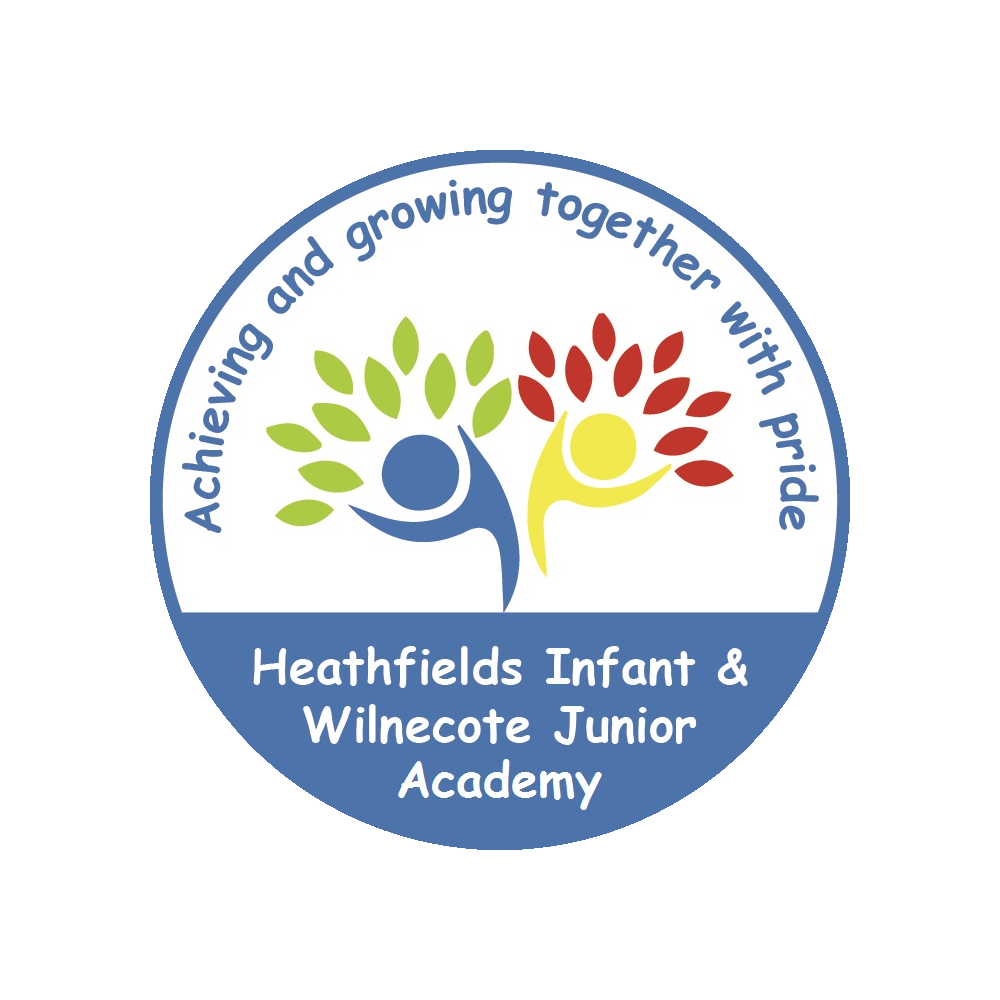How is the teaching of reading and phonics implemented at Heathfields Infant Academy?
The Teaching of Phonics
What is phonics?
Phonics is a systematic way of teaching children to read quickly and skilfully. Whilst there are only 26 letters in the alphabet, spoken English uses about 42 sounds (phonemes). These phonemes are represented by a letter or group of letters (graphemes). The teaching of phonics begins by teaching children the letter sounds in isolation and then building up to blending the sounds together to read whole words. In turn children are then able to use their phonic skills to segment words to support with spelling.
How is phonics taught at our school?
Our approach to teaching phonics is through using ‘Little Wandle Letters and Sounds Revised’ which is a complete phonics programme taught throughout the EYFS and Key Stage one. This is an exciting way of teaching phonics which has colourful, child-friendly resources to complement the teaching of each new phoneme. There are also Little Wandle ‘Big Cat Collins’ books which are used alongside the lessons to enable the children to read books that contain the phonemes that they have been taught. Every child in Reception and Year 1 receives daily focused phonics sessions. Our daily phonics lessons also include the teaching of ‘tricky words’. These are words that cannot be read phonetically e.g. should.
Each week there is a review day to ensure children's understanding of the phonemes taught that week and there is also a review week at the end of each half term to consolidate the children's learning. We expect children to use the skills they have acquired through phonics teaching in all reading, writing and spelling activities, therefore we ensure that phonics is embedded in all areas of our curriculum.
Whereby children are at risk of falling behind in phonics, they are quickly identified for additional keep-up sessions. These sessions take place daily and are led by a trained member of staff.
Every child in Year 2 or above who cannot read at age-related expectations gets urgent, targeted support so that they can access the curriculum and enjoy reading as soon as possible. This takes place daily through the Little Wandle Rapid Catch-up programme.
The Year One phonics screening
The phonics screening check is a short, simple assessment to make sure that all pupils have learnt phonic decoding to an appropriate standard by the age of 6. The check comprises a list of 40 words and non-words which the child will read one-to-one with a teacher.
National curriculum in England: English programmes of study - GOV.UK (www.gov.uk)
The Teaching of Reading
Reading is an essential life skill and as a result we place strong emphasis on children becoming confident, strong readers who enjoy reading for purpose and pleasure. During those first days of Reception, children learn key skills such as how to handle books and that print carries meaning. They continue to explore a range of books including fiction and non-fiction and learn to explore their structure. We aim to instil a love of reading early on in their school life, so this will have a huge impact on their attitude and attainment in reading throughout their education.
Our EYFS and KS1 class reading sessions take place three times a week. Children read a 'Big Cat Little Wandle Letters and Sounds' reading book that has been carefully matched to their phonic knowledge. The lessons focus on decoding, prosody and comprehension. These books are then sent home for your child to read to you.
Once children have graduated from the Little Wandle main programme with a reading speed of at least 60wpm and an accuracy rate of 90%+, they then move on the Little Wandle fluency programme. The children read aloud in every lesson and are taught prosody and practise repeated reading. We also teach comprehension using a dialogic talk model so that children can enjoy discussing what they have read and link it to their experiences.
Promoting wider reading
At Heathfields Infant Academy we aim to develop children who are readers, not just children who can read. Early reading plays a fundamental role in children’s development and it is our duty to ensure children have opportunities to read a range of high-quality texts.
In all classrooms, children take part in a daily book vote to decide which text is shared at the end of the day. Class libraries are set up in all classrooms and have been designed to promote a range of high-quality texts.
Each week, children take part in a 'Book Club'. During this session, they have the opportunity to talk about books they have taken home from the class library. They reflect upon what they liked or disliked and whether they would recommend the book to a friend. Children are also given an opportunity to exchange and select new books to take home. The teacher acts as an influencer within this session, recommending and sharing high-quality reads with the class.
Away from the classroom, all children have access to our reading wheelbarrow at the start and end of the day. This ensures that every child in school has access to books at home and provides an opportunity for them to freely select books with their parents/carers. The wheelbarrow is also accessible during playtime and lunchtimes.
